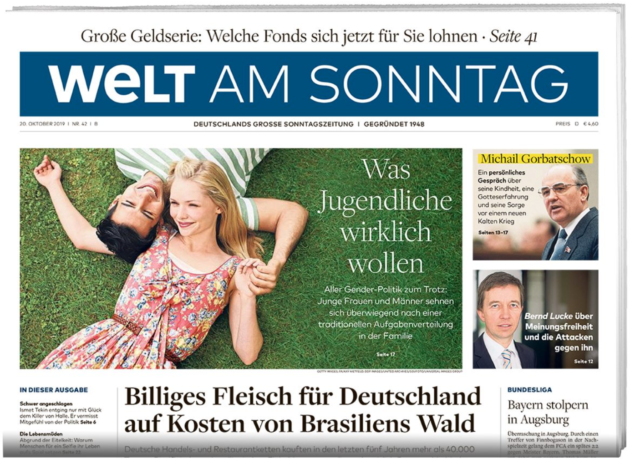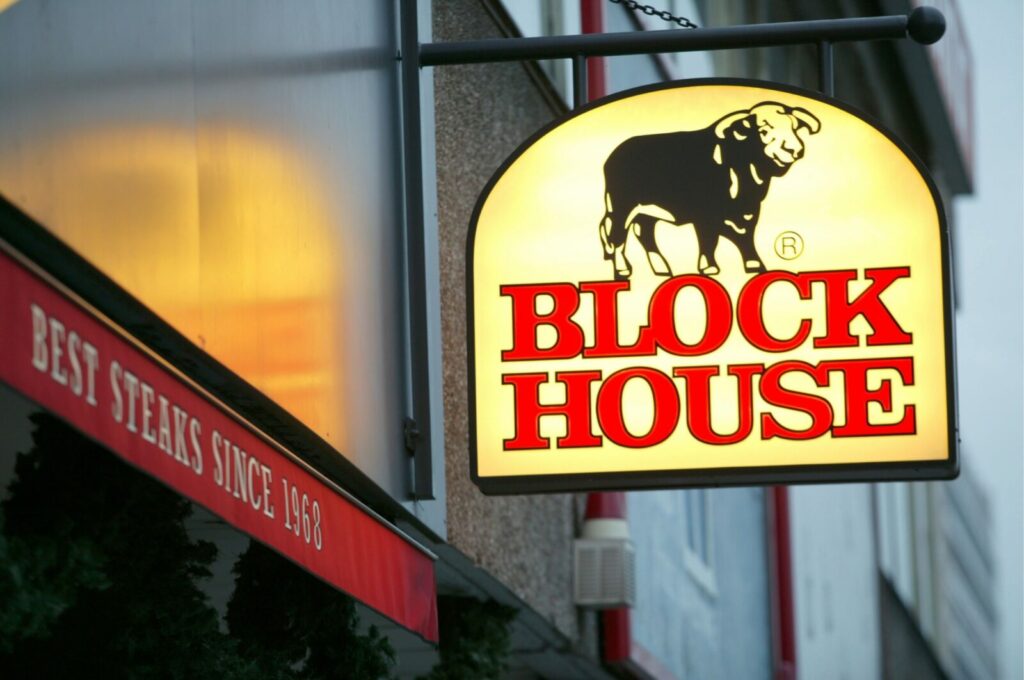German Appetite for Beef Eats into Brazilian Rainforest
BRICS, EUROPE, LATIN AMERICA AND THE CARIBBEAN, ENVIRONMENT, ANIMAL RIGHTS - VEGETARIANISM, 28 Oct 2019
Andrew Wasley and Alexandra Heal – The Bureau of Investigative Journalism
21 Oct 2019 – Germany imported €216m worth of Brazilian beef over five years from meat companies linked to major deforestation in the Amazon and other vital areas.
The newspaper Welt Am Sonntag used data collated by the Bureau to calculate that German restaurants and retail chains used 40,000 tonnes of beef imported from the Brazilian giants JBS, Marfrig and Minerva. Some of Germany’s biggest brands were found to be among the direct buyers, including the Tönnies meat company and the Block House steak restaurant chain.
Amazon deforestation was found to have almost quadrupled in the year to July, which has been widely blamed on the pro-agribusiness and climate-sceptic rhetoric of the Brazilian president, Jair Bolsonaro.
Germany’s imports accounted for about 7% of the half a million tonnes of Brazilian beef imported by the EU from JBS, Marfrig and Minerva over five years, which was worth at least €2.7bn.
Our recent investigations with the Guardian and Repórter Brasil into JBS and Marfrig found that both companies had recently undermined their own pledges by buying from suppliers who had broken rules around deforestation. Separate unprecedented research has linked the beef export supply chains of JBS, Marfrig and Minerva to up to 500 sq km of Amazon deforestation every year.

Welt Am Sonntag’s front page: “Billiges Fleisch für Deutschland auf Kosten von Brasiliens Wald” or “Cheap meat for Germany at the expense of Brazil’s forests”
Welt Am Sonntag
Environmental destruction in Brazil is not limited to the Amazon, however. The beef imported into Germany is most likely to come from the Cerrado, an extremely biodiverse savannah in the southeast of Brazil, according to Trase, the supply chain consultancy behind the research. Trase found that an area of protected land the size of 350 football fields is converted every year into pasture to feed the German appetite for Brazilian beef. The Cerrado is being destroyed faster than the Amazon, according to the World Wide Fund for Nature.
Germany imports only a small proportion of its beef from Brazil — the bulk comes from the EU.
Tönnies told Welt Am Sonntag that, according to its knowledge, its imported beef does not “come from a rainforest area”.
The director of Block House said the industry was aware of the deforestation problem, but that some companies continued to import the Brazilian beef because it was cheaper. The steakhouse chain said it imported very little of its beef from Brazil, but planned to stop altogether.
Go to Original – thebureauinvestigates.com
Tags: Amazonia, BRICS, Brazil, Capitalism, Conflict, Deforestation, Development, Economics, Environment, European Union, Geopolitics, Germany, Indigenous Rights, Latin America Caribbean, Media, Politics, Power, Racism, Social justice, Violence, West, World
DISCLAIMER: The statements, views and opinions expressed in pieces republished here are solely those of the authors and do not necessarily represent those of TMS. In accordance with title 17 U.S.C. section 107, this material is distributed without profit to those who have expressed a prior interest in receiving the included information for research and educational purposes. TMS has no affiliation whatsoever with the originator of this article nor is TMS endorsed or sponsored by the originator. “GO TO ORIGINAL” links are provided as a convenience to our readers and allow for verification of authenticity. However, as originating pages are often updated by their originating host sites, the versions posted may not match the versions our readers view when clicking the “GO TO ORIGINAL” links. This site contains copyrighted material the use of which has not always been specifically authorized by the copyright owner. We are making such material available in our efforts to advance understanding of environmental, political, human rights, economic, democracy, scientific, and social justice issues, etc. We believe this constitutes a ‘fair use’ of any such copyrighted material as provided for in section 107 of the US Copyright Law. In accordance with Title 17 U.S.C. Section 107, the material on this site is distributed without profit to those who have expressed a prior interest in receiving the included information for research and educational purposes. For more information go to: http://www.law.cornell.edu/uscode/17/107.shtml. If you wish to use copyrighted material from this site for purposes of your own that go beyond ‘fair use’, you must obtain permission from the copyright owner.
Read more
Click here to go to the current weekly digest or pick another article:
BRICS:
- BRICS Expands to 56% of World Population, 44% of Global GDP
- Are Trump’s Tariffs Actually Hurting China?
- The “BRICS Sovereigns” vs the “Globalist Oligarchy”
EUROPE:
- Raised in a Colonial Death Cult: 600 Years of KU Leuven and still...
- The Rise of ‘Antidiplomacy’ in a Powerless Europe
- ‘Diplomatic Tsunami’ Nears as Europe Begins to Act against Israel’s ‘Complete Madness’ in Gaza
LATIN AMERICA AND THE CARIBBEAN:
- China Must Provide More Substantial Aid to Cuba
- Trump's Utterly Cruel and Inhuman Immigration Policy Targetting Haitians
- Venezuela: Pro-Government Alliance Wins Big in Legislative and Regional Elections
ENVIRONMENT:
- Criminal Negligence in the Degrowth Movement? Why Transformative Criminology Matters for Systemic Change
- Mother Earth Cries: They Bombed Me Again
- Climate Misinformation Turning Crisis into Catastrophe, Report Says
ANIMAL RIGHTS - VEGETARIANISM:
